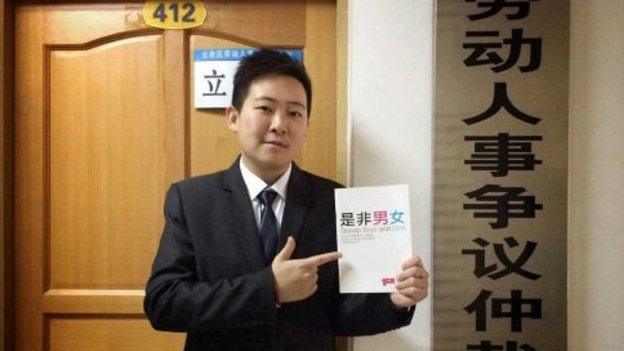Fighting the views of homosexuality in China's textbooks
- Published
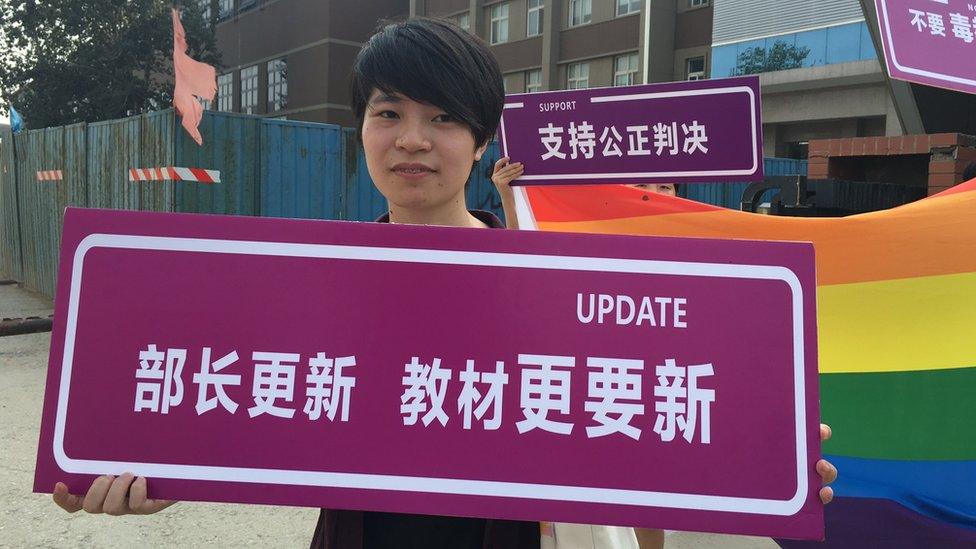
Qiu Bai holds up a sign demanding that the textbooks are updated so they no longer describe homosexuality as an illness
Studying psychology in China, you might find yourself opening your textbook and reading that "homosexuality is an abnormal sexual mental disorder". It is compared with paedophilia or those who have sex with animals or dead people.
How do you know if someone has become "sick" with homosexuality? The Chinese textbooks can tell you what to look out for: a lack of confidence in sexual performance, a fear of being rejected by the opposite sex and other anxieties including family pressures.
Then there are the suggested treatments for homosexuality, like these listed in "Consulting Psychology" published by Guangdong Higher Education Press, a recommended text for mental health education:
1. Platonic love relationship: Find an "elegant and caring" member of the opposite sex. Establish a relationship as friends initially. Then hope it becomes something else.
2. Repulsion therapy: Induce nausea with forced vomiting or fear of electrocution when thoughts of having a lover of the same sex emerge.
3. Shock therapy: Cause major shock to your lifestyle by moving to an entirely new environment in order to sever connection with previous friends, etc.
4. Sexual orientation transfer: When you are aroused, practise channelling that feeling towards somebody of the opposite sex using pictures and audio recordings.
For one lesbian student at Sun Yat-sen University in Guangzhou this is all way beyond the realms of what's acceptable in 2016.
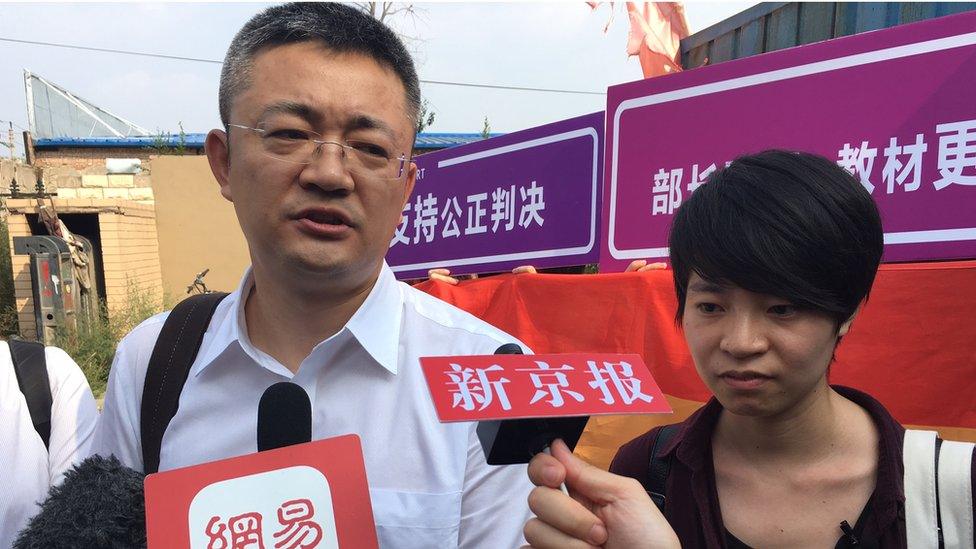
Qiu Bai (right) and her lawyer have been challenging the education department in the courts
Going by the name Qiu Bai, she initially complained to the regional education department. They said to go to the publisher. She tried this but claims she was ignored.
She then approached her university's library. They told her it was a matter of academic freedom and that, as such, they would not remove the books.
She took it to the Guangdong provincial court which refused to accept the case saying she was not harmed directly by these books.
She didn't stop.
This week, Qiu Bai has ended up in the nation's capital, suing the national education department.
At a hearing in the Beijing No 1 Intermediate People's Court, the department didn't even bother to retain legal counsel.
Qiu Bai's lawyer, Wang Zhenyu, said: "I think the ministry of education must be pretty confident. The two representatives who turned up today work for the department's legal office. They probably think that they know enough about the law. But we had hoped they would hire a lawyer so we could have a proper professional dialogue."
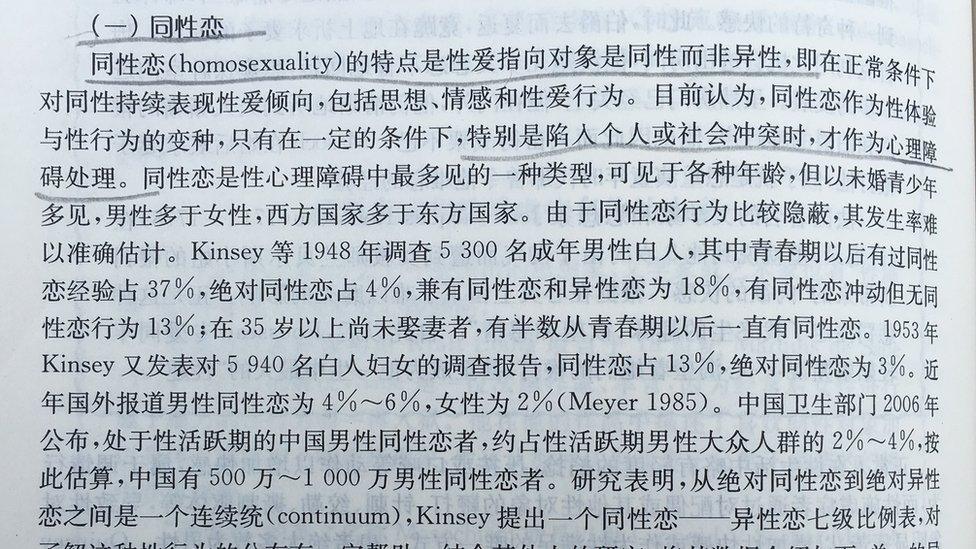
This textbook recommends that homosexuality is treated "as a mental disorder" when it causes personal or social conflict
The hearing lasted half an hour.
In Chinese trials, they don't muck around.
And yet lawyer Wang Zhenyu thought the judge was trying to be fair, adding: "I'm not surprised that Qiu Bai was given at least 5 minutes to make a statement. When we had a pre-trial meeting with the same judge, they always seemed amicable. I think the judge understands that we're fighting for a chance for Qiu Bai to speak up."
A result is expected quickly but nobody thinks a lone Chinese student will defeat her country's education department.
Outside the court Qiu Bai was not as optimistic as her lawyer.

LGBT supporters have tried to make themselves heard - including at the annual ShanghaiPRIDE run
"I feel a bit disappointed today," she said. "I took a long journey from Guangzhou to get here hoping they could solve this problem quickly but the result is disappointing. It's been a year. It's the same judge and the same defendants and we've made no progress at all.
"The ministry of education needs to state publicly its point of view on how to present homosexuality. It needs to at least respond to my petition about these textbook errors and ask publishers to check if they have made similar errors. What I'm asking them to do is very specific."
Yet most among the little crowd of supporters who were there to cheer her on seem to see this as a gradual process. "Man man lai", the Chinese say. It basically means to take things step by step.
Their unexpected champion is drawing attention to their cause.
And outside the court, the supporters were taking photos and filming for various blogs, the offending textbooks spread out on the pavement for people to read.
The activists are planning more legal action, and they think that - in the long run - the march of history is on their side.
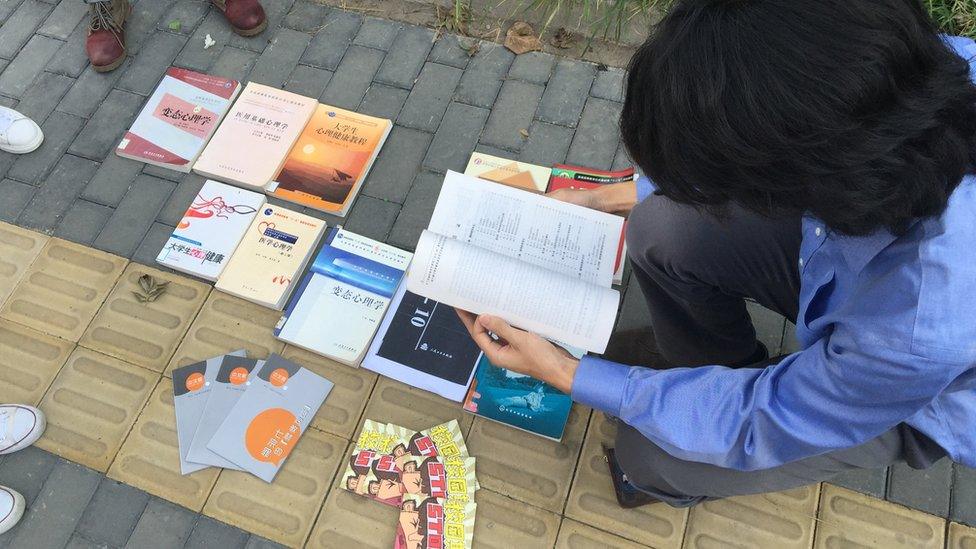
The education department representatives who participated in the trial were not available for comment but Qiu Bai's opponents must have by now realised that this softly spoken activist is not going away.
They couldn't help but notice that she's an adversary with patience and determination.
They will probably beat her again this time but, in a month or so, she'll be returning quietly to another courtroom to file applications or she'll be knocking on the door of some official to request that a library changes its books.
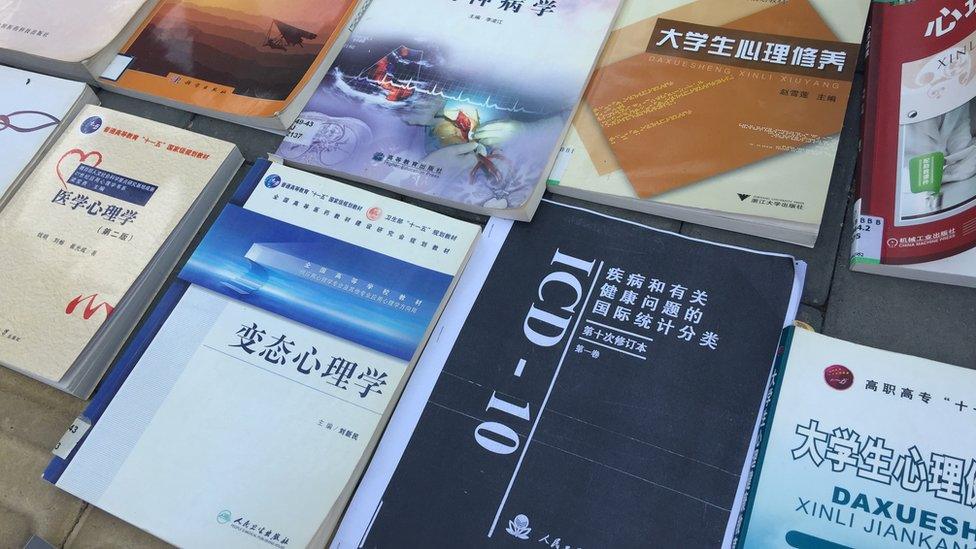
Many textbooks still liken homosexuality to a disorder
She told the BBC that there were decent psychology textbooks in China but they're not so easy to find.
"I'm waiting for the verdict now," she said.
"If I win, I will continue to monitor the ministry of education and ask them to follow through. If I lose, I will find other ways to campaign. I have to get them to address this problem."
- Published22 August 2016
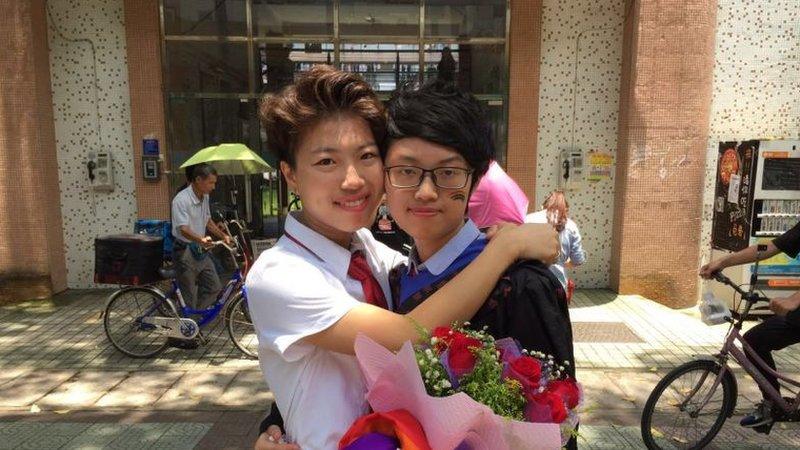
- Published29 July 2016
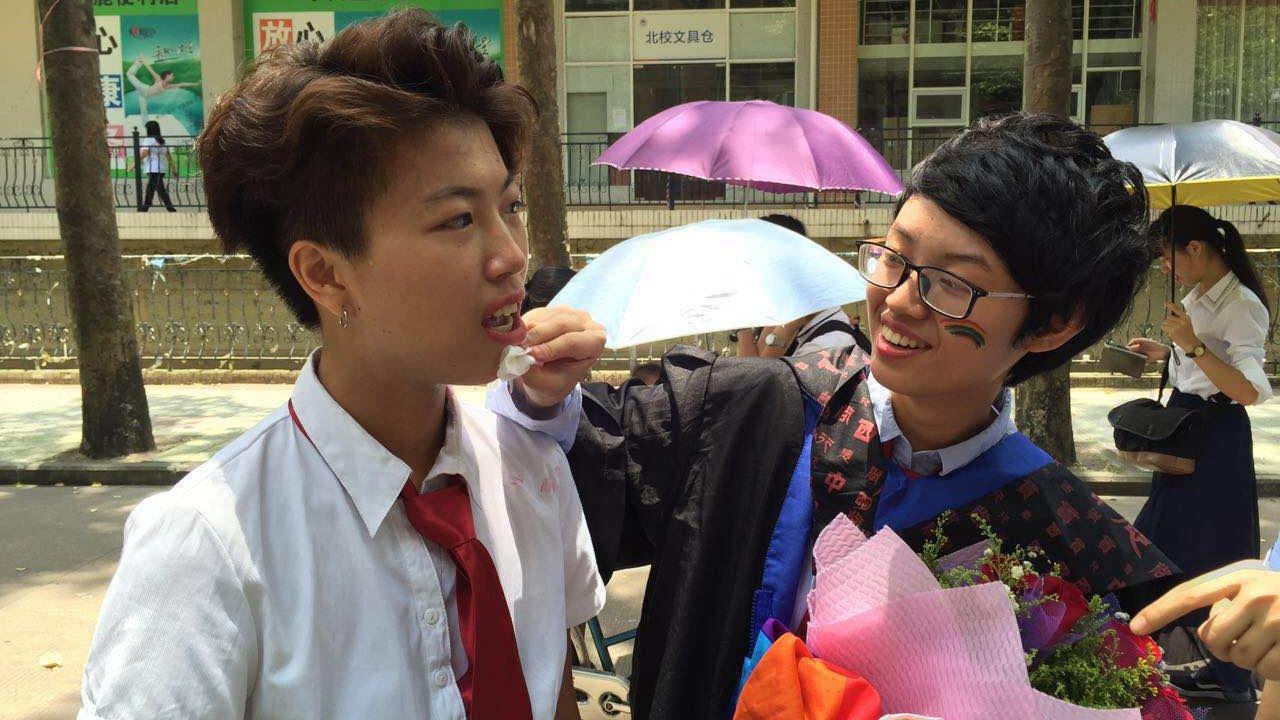
- Published14 April 2016
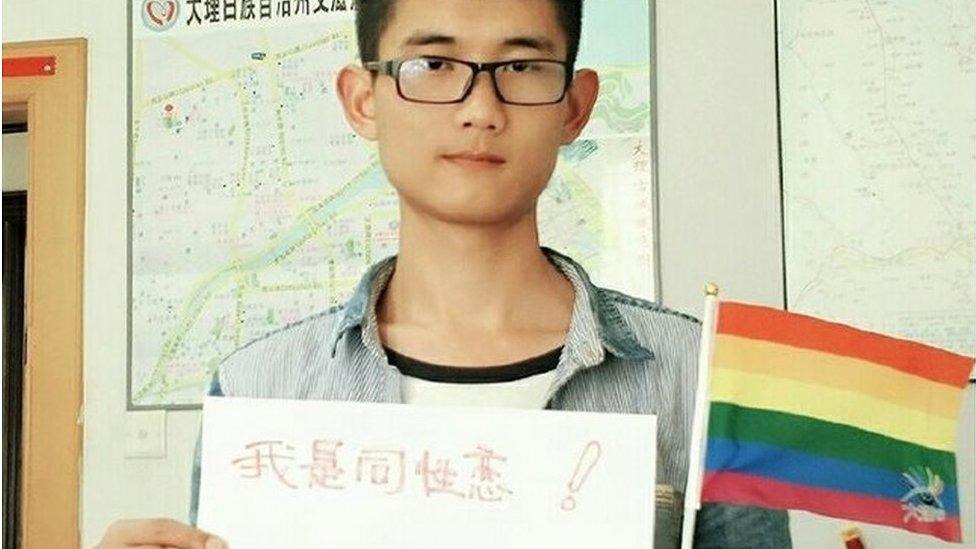
- Published16 June 2016
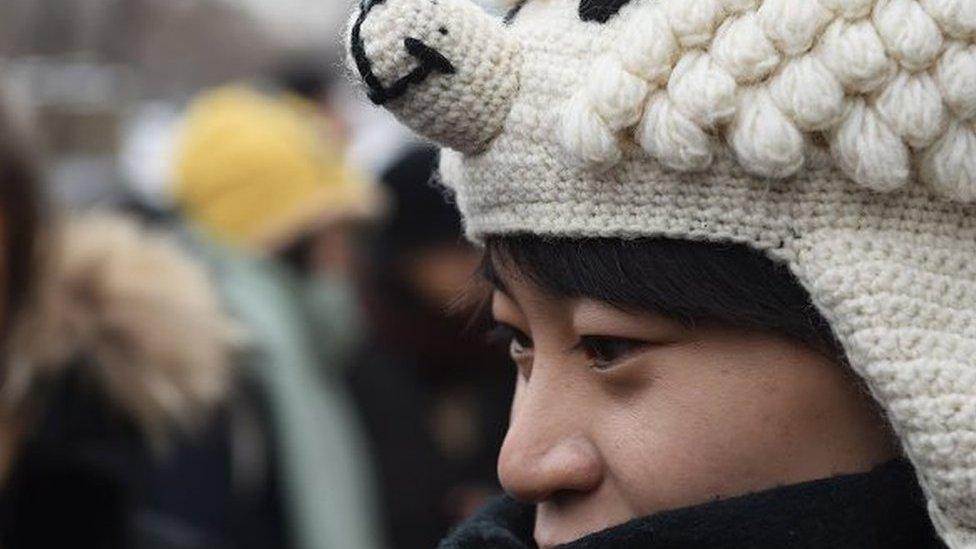
- Published10 May 2016
